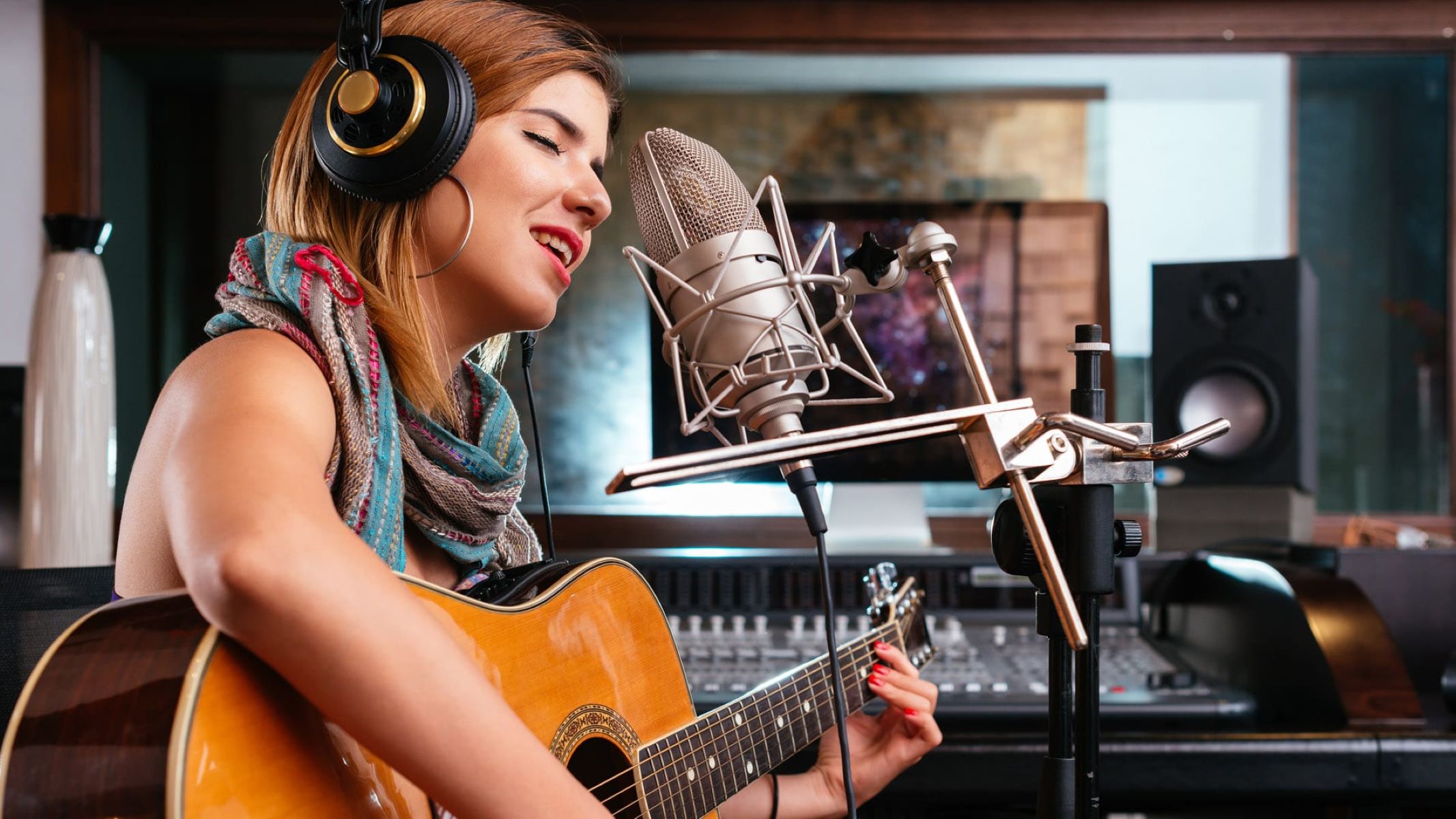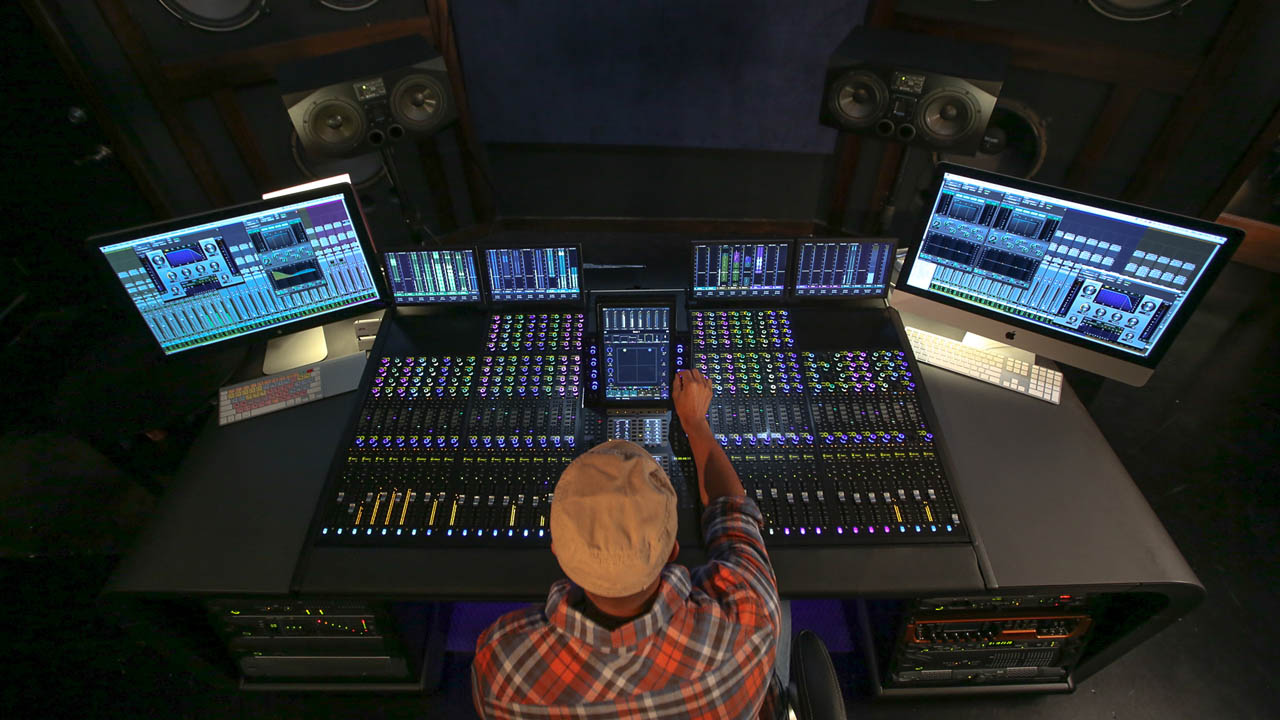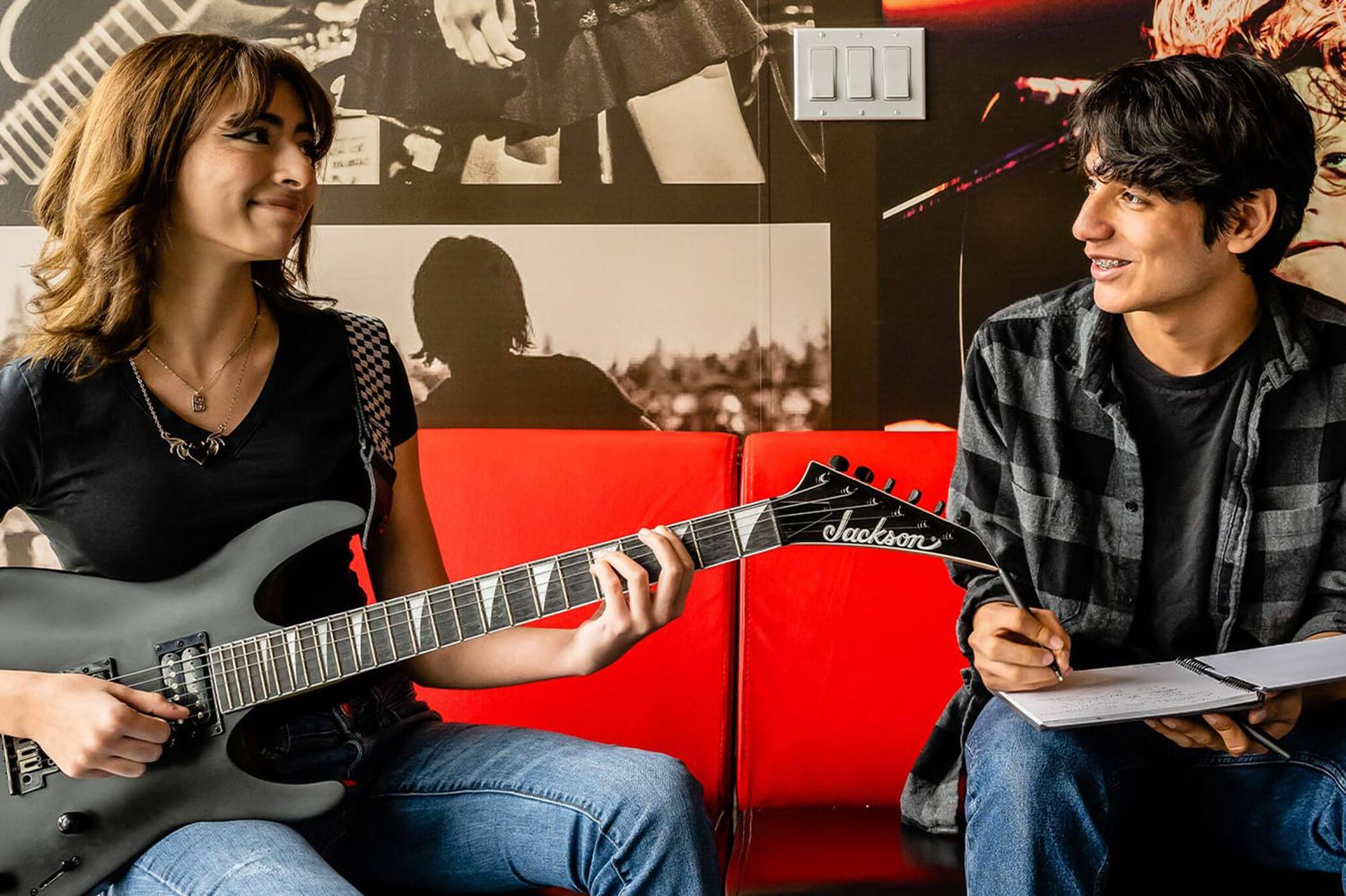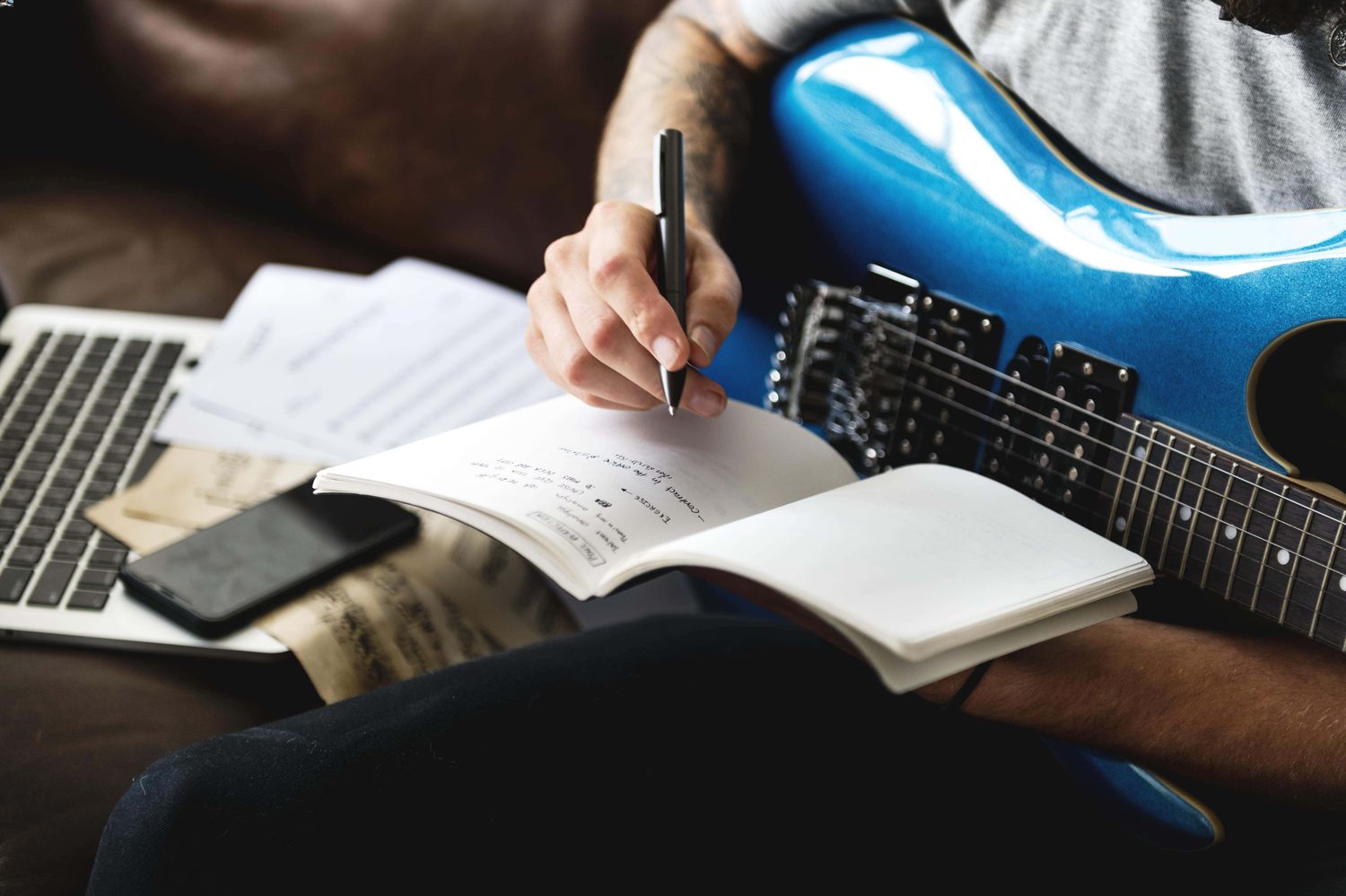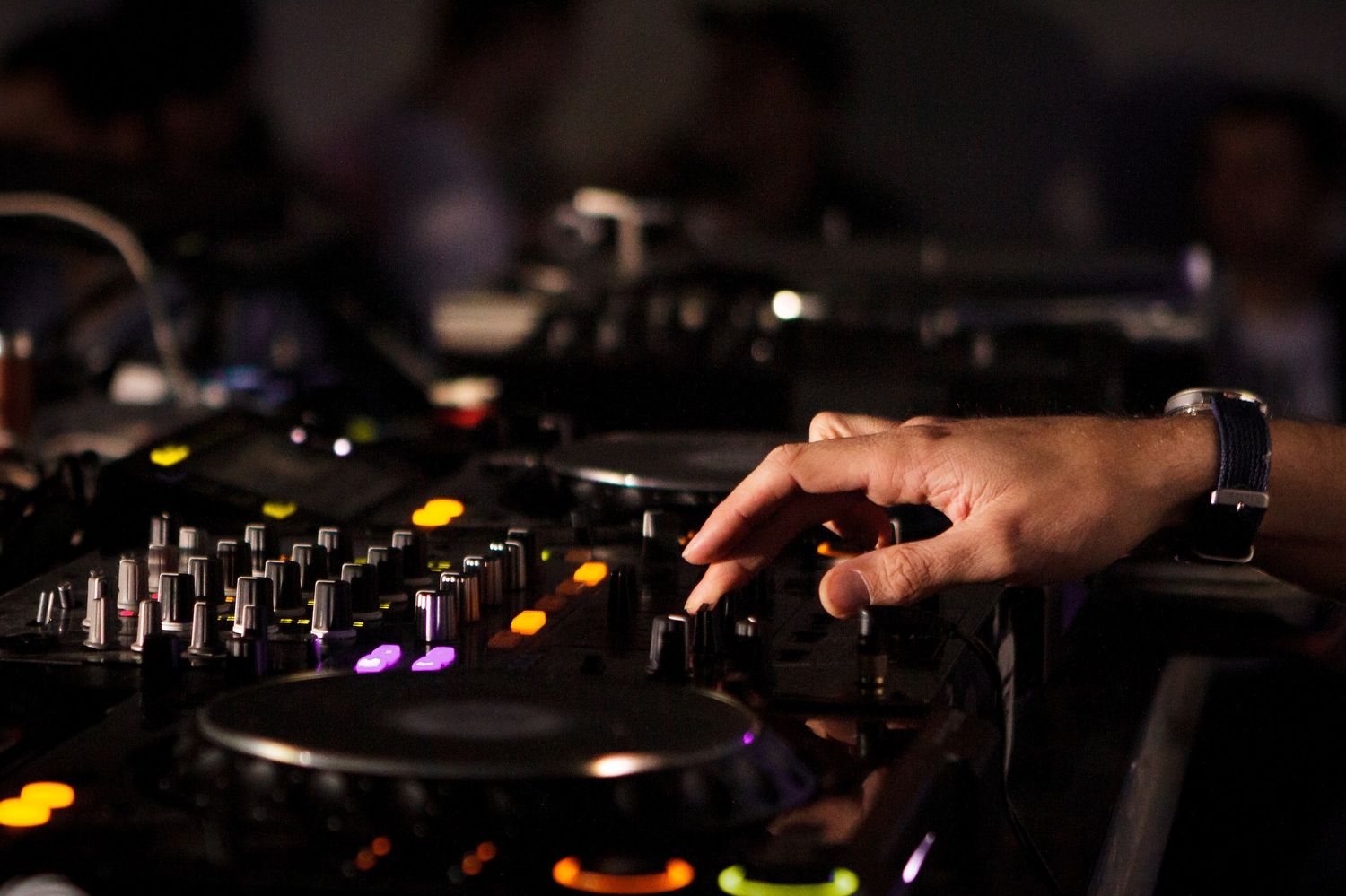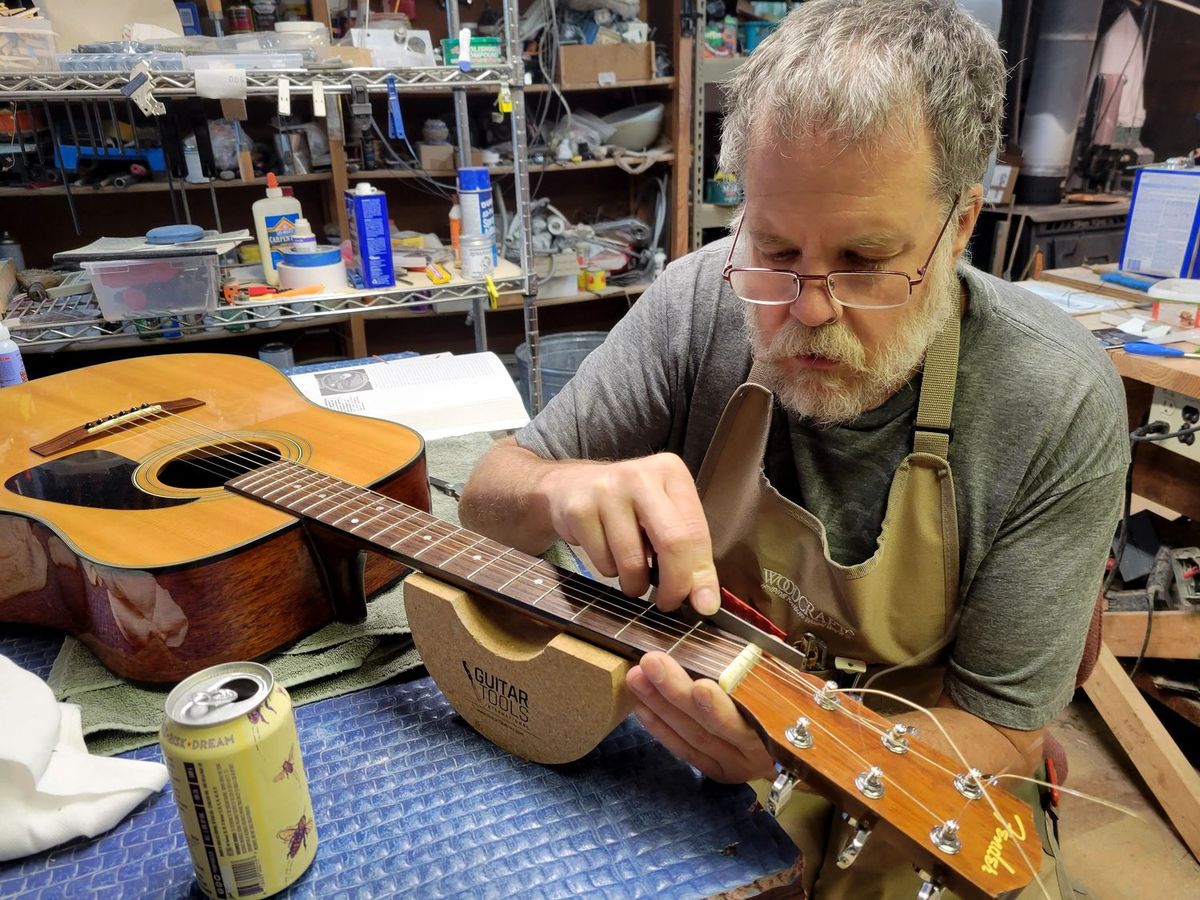Home>Production & Technology>Musician>How To Become A Great Musician


Musician
How To Become A Great Musician
Modified: January 31, 2024
Learn how to become a great musician and master the art of music. Unlock your full potential and gain recognition in the music industry.
(Many of the links in this article redirect to a specific reviewed product. Your purchase of these products through affiliate links helps to generate commission for AudioLover.com, at no extra cost. Learn more)
Table of Contents
- Introduction
- Finding Your Passion for Music
- Setting Goals and Objectives
- Developing Your Technical Skills
- Practicing Effectively
- Building a Solid Music Repertoire
- Working on Musical Interpretation
- Studying Music Theory and Composition
- Collaborating with Other Musicians
- Performing in Public
- Seeking Feedback and Continuous Improvement
- Nurturing Your Musicality and Creativity
- Balancing Music with Other Areas of Life
- Overcoming Challenges and Obstacles
- Embracing a Lifelong Learning Mindset
- Conclusion
Introduction
Music has the power to touch our hearts, evoke emotions, and bring people together. Becoming a great musician is a journey that requires dedication, passion, and continuous growth. Whether you dream of playing an instrument, singing, or composing, this article will guide you on how to become a great musician.
Music offers an outlet for self-expression, a means to connect with others, and a platform to make a difference. It is a universal language that transcends cultural boundaries and speaks to the depths of our souls. If you have a deep love for music and a burning desire to make it a significant part of your life, then you are already on the right path.
However, becoming a great musician takes more than just talent and passion. It requires discipline, perseverance, and a commitment to continuous learning and improvement. With the right mindset and approach, you can unlock your musical potential and embark on a fulfilling musical journey.
Throughout this article, we will explore the various steps and strategies that can help you become a great musician. From finding your passion for music to honing your technical skills, building a solid music repertoire, and performing in public, we will cover all the essential elements that contribute to musical excellence. So, let’s dive in and discover the roadmap to becoming a remarkable musician.
Finding Your Passion for Music
Before embarking on your journey to becoming a great musician, it’s important to identify your passion for music. Ask yourself what drew you to music in the first place. Was it a particular song that moved you, a desire to create your own melodies, or the joy of playing an instrument? Understanding your motivations will help fuel your commitment and drive you forward.
Take the time to explore different genres and styles of music. Listen to a variety of artists and immerse yourself in the sounds and emotions they evoke. Attend concerts or music festivals to experience live performances and witness the power of music firsthand. This exposure will help you discover what resonates with you and where your interests lie.
Once you have identified your musical interests, it’s essential to choose an instrument or vocal style that aligns with your passion. Consider what instrument or voice type speaks to you the most and allows you to express yourself authentically. Experiment with different instruments to find the one that resonates with your soul.
Additionally, seek out opportunities to learn and grow in your chosen musical domain. Take lessons from experienced teachers who can guide you and provide valuable insights. Join music clubs or ensembles to collaborate and connect with fellow musicians who share your passion.
Remember, the journey to becoming a great musician is a personal one. It’s not about comparing yourself to others or trying to meet someone else’s expectations. It’s about finding what truly brings you joy and fulfillment in music.
So, take the time to explore, reflect, and find your unique passion for music. Once you have discovered it, you will be ready to embark on a rewarding musical journey.
Setting Goals and Objectives
Setting goals and objectives is a crucial step in becoming a great musician. It gives you a clear direction to work towards and helps you measure your progress along the way. Here are some tips to help you set effective goals:
- Define your long-term vision: Start by envisioning the type of musician you want to become in the future. What achievements do you want to accomplish? This long-term vision will serve as the foundation for setting your goals.
- Break it down into smaller goals: Once you have your long-term vision, break it down into smaller, more manageable goals. These can be monthly, weekly, or even daily objectives that contribute to your overarching vision.
- Make them specific and measurable: Set goals that are specific and measurable. Instead of saying “I want to improve my piano skills,” specify a particular aspect like “I want to learn two new piano pieces in the next month.”
- Set deadlines: Assign deadlines to your goals to create a sense of urgency and accountability. Having a timeframe will help you stay focused and prioritize your practice sessions.
- Be realistic but challenging: Make sure your goals are attainable, yet challenging enough to keep you motivated. Push yourself outside of your comfort zone, but also be mindful of setting goals that are within your reach.
- Track your progress: Regularly assess your progress towards your goals. Note down milestones you’ve reached and identify areas where you need to put in more effort. This self-reflection will help you stay on track and make adjustments as needed.
- Celebrate achievements: Celebrate your achievements along the way, no matter how small. Acknowledge the progress you’ve made and reward yourself for your hard work and dedication. This positive reinforcement will keep you motivated as you continue your musical journey.
Remember, goals are meant to guide and inspire you. They provide a roadmap to success and help you stay focused on your musical development. By setting clear objectives and diligently working towards them, you will steadily progress and become a great musician.
Developing Your Technical Skills
One of the key elements in becoming a great musician is developing your technical skills. Whether you’re playing an instrument or using your voice, honing your technique will lay the foundation for your musical prowess. Here are some tips to help you develop your technical skills:
- Take lessons from a qualified instructor: Seeking guidance from an experienced teacher is invaluable when it comes to developing your technical skills. They can provide you with proper instruction, correct any bad habits, and offer personalized feedback and guidance.
- Practice proper posture and technique: Pay attention to your posture and technique while playing or singing. Proper body alignment and hand positions can significantly improve your playing and prevent injuries in the long run.
- Focus on fundamental exercises: Dedicate time to practicing fundamental exercises that target specific technical aspects. This can include scales, arpeggios, finger exercises, or vocal warm-ups. Mastering these foundational exercises will enhance your overall control and dexterity.
- Develop finger independence and coordination: If you’re playing an instrument, work on developing finger independence and coordination. This will allow you to play complex melodies and chords effortlessly. Practice exercises that target finger independence, such as trills and Hanon exercises for piano players.
- Develop breath control and vocal range: For singers, focus on developing breath control and expanding your vocal range. Practice breathing exercises and vocal exercises that target your range and control. Work with a vocal coach who can guide you in developing your unique vocal abilities.
- Listen and learn from accomplished musicians: Listen to recordings of accomplished musicians in your instrument or vocal style. Pay attention to their technique, tone, and phrasing. Learn from their mastery and incorporate what you learn into your own playing or singing.
- Record and listen to yourself: Record your practice sessions or performances and listen back to them critically. Identify areas where you can improve and make adjustments. This self-assessment will help you refine your technical skills and identify areas for growth.
- Seek feedback and guidance: Don’t be afraid to seek feedback from other musicians, teachers, or mentors. They can offer valuable insights and provide constructive criticism to help you improve. Embrace feedback as an opportunity for growth.
Developing your technical skills is a continuous process that requires consistent practice and dedication. By focusing on proper technique, seeking guidance, and engaging in deliberate practice, you will strengthen your technical foundation and elevate your musical abilities.
Practicing Effectively
Effective practice is essential for improving your musical abilities and becoming a great musician. It’s not just about the amount of time you dedicate to practice, but also how you approach and structure your practice sessions. Here are some tips to help you practice effectively:
- Set specific goals for each practice session: Before you start practicing, establish specific goals or objectives for what you want to achieve. It could be mastering a particular piece, working on a challenging section, or improving a specific technique.
- Practice in focused and concentrated sessions: Rather than practicing for long, uninterrupted stretches, break your practice sessions into shorter, focused segments. Concentrate on the areas that require the most attention and work on them deliberately.
- Warm up before you start: Begin each practice session with warm-up exercises to prepare your muscles, voice, or fingers for playing. This helps prevent injuries and allows you to perform at your best.
- Use a variety of practice techniques: Incorporate a mix of techniques during your practice sessions, such as slow practice, chunking, repetition, and visualization. Experiment with different approaches to see what works best for you.
- Practice with a metronome or backing tracks: Use a metronome or backing tracks to develop and maintain a sense of rhythm and timing. It helps you stay in sync and improves your overall musicality.
- Break down challenging sections: If you encounter a challenging section in a piece, isolate it and break it down into smaller components. Practice each component separately and gradually build up to the entire section. This approach will help you overcome difficulties more effectively.
- Repeat and review: Repetition is key to mastering a piece or technique. Repeat challenging passages multiple times and review previously learned material regularly to ensure retention.
- Take breaks and rest: It’s important to give yourself breaks during practice sessions to avoid mental and physical fatigue. Allow time for rest and reflection to consolidate what you’ve learned.
- Stay focused and present: During practice, eliminate distractions and stay fully present in the moment. Minimize interruptions and cultivate a focused mindset to maximize your progress.
- Listen critically: As you practice, listen critically to the sound you produce. Pay attention to intonation, tone quality, articulation, and dynamics. Strive for clarity and expression in your playing or singing.
Remember, effective practice is not about simply going through the motions, but rather engaging with intention and purpose. By implementing these strategies and maintaining a disciplined practice routine, you will see significant improvement in your musical abilities.
Building a Solid Music Repertoire
A strong music repertoire is essential for any aspiring musician. It demonstrates your versatility, showcases your skills, and provides opportunities for performance and collaboration. Here are some steps to help you build a solid music repertoire:
- Choose a variety of musical genres: Include a diverse range of musical genres in your repertoire. This will not only showcase your versatility but also allow you to explore different styles and expand your musical horizons.
- Curate a mix of solo and ensemble pieces: Include both solo pieces and ensemble arrangements in your repertoire. Solo pieces allow you to shine individually, while ensemble arrangements provide opportunities for collaboration and musical synergy.
- Select pieces that challenge and showcase your skills: Choose pieces that push your technical and musical abilities. This will demonstrate your proficiency and growth as a musician. However, also include pieces that highlight your strengths and bring out your unique musicality.
- Consider the audience and performance opportunities: Think about the audience you want to reach and the performance opportunities you wish to pursue. Tailor your repertoire to suit these contexts, whether it’s performing at a concert hall, a local venue, or even for private events.
- Balance well-known and lesser-known works: Include a mix of well-known and lesser-known works in your repertoire. While familiar pieces can engage listeners, introducing lesser-known pieces can pique curiosity and showcase your ability to interpret and present new music.
- Continue expanding and updating your repertoire: Building a solid music repertoire is an ongoing process. Continuously seek out new and challenging pieces to add to your collection. Explore different composers, eras, and styles to keep your repertoire fresh and dynamic.
- Pay attention to the flow and cohesion of your repertoire: Ensure that your repertoire flows smoothly and demonstrates cohesion. Consider the pacing, contrast, and overall narrative of your setlist or program.
- Adapt and arrange music to suit your instrumentation or voice: If you’re part of a specific ensemble or have a unique vocal range, adapt and arrange music to suit your specific instrumentation or voice. This allows you to showcase your individuality and creativity.
- Record and document your repertoire: Keep a record of the pieces in your repertoire, along with any performances or recordings you have made. This will help you track your progress and create a professional portfolio to showcase your musical achievements.
- Seek feedback and performance opportunities: Share your repertoire with fellow musicians, teachers, and mentors to receive valuable feedback. Look for opportunities to perform and showcase your repertoire, such as open mics, recitals, or local events.
Building a solid music repertoire takes time and effort. It requires careful selection, practice, and continuous exploration. By following these steps and investing in your repertoire, you will develop a collection of music that represents your unique musical identity and showcases your talents as a musician.
Working on Musical Interpretation
Musical interpretation is a crucial aspect of becoming a great musician. It involves bringing a piece of music to life, infusing it with emotion, expression, and personal insight. Here are some tips to help you work on your musical interpretation:
- Study the composer’s intent: Gain a deeper understanding of the composer’s intent behind the music you are playing. Research the historical context, the composer’s background, and any notes or markings they have provided. This knowledge will inform your interpretation and guide your artistic choices.
- Listen to different interpretations: Explore various recordings or performances of the piece you are working on. Listen to different interpretations by renowned musicians to gain inspiration and insight into the possibilities of musical expression.
- Connect with the emotions of the music: Dive into the emotional world of the music. Identify the moods, sentiments, and stories that the piece conveys and find ways to connect with them on a personal level. This emotional connection will bring depth and authenticity to your interpretation.
- Experiment with dynamics, phrasing, and articulation: Explore different dynamics, phrasing, and articulation techniques to shape the music. Experiment with subtle nuances, expressive phrasing, and strategic use of articulation to enhance the musicality and convey your interpretation effectively.
- Use body language and expression: Your physical presence and body language can greatly enhance your musical interpretation. Use your posture, facial expressions, and gestures to convey the emotional and expressive aspects of the music to the audience.
- Improvise and add personal touches: Feel free to add your own personal touches to the music, within the boundaries of the composition. Explore opportunities for improvisation or embellishments to bring your unique musical voice and creativity into the interpretation.
- Collaborate with other musicians: Collaborating with other musicians can offer fresh perspectives and insights. Engage in musical conversations, rehearse together, and actively listen to and respond to their interpretations. This collaborative process can enrich your own musical interpretation.
- Record and listen to your performances: Record your practice sessions and performances to gain a critical ear. Listen back to your recordings and analyze your interpretation. Reflect on what worked well and areas where you can improve to refine and evolve your musical interpretation.
- Experiment with different tempos and styles: Explore different tempos and styles when interpreting a piece. Experiment with faster or slower tempos, variations in rhythm, or try playing the piece in a different musical style. This experimentation can lead to unique insights and interpretations.
- Seek feedback from experienced musicians: Seek feedback from experienced musicians, teachers, or mentors who can provide guidance and constructive criticism. They can help you refine your musical interpretation and offer fresh perspectives to further enhance your performance.
Working on musical interpretation is an ongoing process of exploration, experimentation, and self-expression. As you delve into the depths of the music, connect with the emotions, and cultivate your own artistic voice, you will develop a compelling and captivating musical interpretation that resonates with both you and your audience.
Studying Music Theory and Composition
Studying music theory and composition is essential for a well-rounded musician. It provides a deeper understanding of the structure, language, and principles of music. Here are some reasons why studying music theory and composition is important:
- Enhances your understanding of music: Music theory enables you to analyze and comprehend the inner workings of a piece. It helps you recognize patterns, understand chord progressions, and interpret musical symbols. This knowledge deepens your appreciation and interpretation of music.
- Improves your sight-reading skills: Learning music theory enhances your ability to read and interpret sheet music. You can quickly identify key signatures, scales, and intervals, which aids in sight-reading and learning new music more efficiently.
- Provides a foundation for composition and improvisation: When you study music theory, you gain insight into the elements that make up music. This knowledge allows you to compose your own music, create harmonies, and explore improvisation with confidence.
- Expands your musical vocabulary: Understanding music theory gives you a vocabulary to communicate musical concepts effectively. It enables you to discuss musical ideas with other musicians, collaborate more effectively, and understand musical concepts in a broader context.
- Helps you analyze and appreciate different musical styles: Music theory allows you to analyze and appreciate various musical styles and genres. You can identify the characteristics of different periods or composers, which deepens your understanding of music history and broadens your musical horizons.
- Guides your interpretation and performance: Studying music theory provides insights into the composer’s intentions and helps you make informed interpretive choices. It guides your performance by helping you understand the harmonic progressions, melodic motifs, and formal structures within a piece.
- Fosters creativity and musical innovation: Learning music theory gives you the tools to explore different compositional techniques and experiment with musical ideas. It offers a framework for innovation and fosters your creativity as a musician.
- Provides a foundation for academic and professional pursuits: For those who wish to pursue music academically or professionally, a solid understanding of music theory is crucial. It forms the basis for further study, composition, arranging, conducting, and music education.
- Allows you to analyze and solve musical problems: When faced with musical challenges, knowledge of music theory can help you analyze and solve problems more effectively. It allows you to identify errors, find alternative approaches, and refine your musical skills.
- Deepens your overall musical knowledge: Studying music theory expands your overall musical knowledge and understanding. It enriches your musical experience, enables you to appreciate music on a new level, and broadens your perspective as a musician.
Whether you’re a performer, composer, or music enthusiast, studying music theory and composition is essential for your musical growth and development. It provides a solid foundation, nurtures your creativity, and enhances your overall musicality.
Collaborating with Other Musicians
Collaboration with other musicians is a valuable and enriching experience for any musician. It opens doors to new musical possibilities, fosters creativity, and enhances your overall musical growth. Here are some reasons why collaborating with other musicians is important:
- Sharing of ideas and perspectives: Collaborating with other musicians exposes you to different ideas and perspectives. It sparks creativity, expands your musical horizons, and challenges you to think outside the box.
- Building musical synergy: Working with other musicians allows you to build musical synergy. It enables you to blend your individual strengths, ideas, and techniques to create a cohesive and harmonious musical experience.
- Learning from each other: Collaborating with other musicians provides an opportunity to learn from their expertise and musical experiences. Each individual brings unique skills and insights to the table, fostering a culture of mutual learning and growth.
- Developing teamwork and communication skills: Collaboration requires effective teamwork and communication. By working with other musicians, you enhance your ability to listen, communicate musical intentions, and adapt to different playing styles or interpretations.
- Expanding your musical network: Collaborating with other musicians expands your musical network and opens doors to new opportunities. It allows you to connect with like-minded individuals, potentially leading to future collaborations, performances, or professional endeavors.
- Exploring different musical genres and styles: Collaborating with musicians who specialize in different genres or styles exposes you to new musical worlds. It allows you to explore and experiment with diverse musical expressions and genres outside of your comfort zone.
- Creating unique and innovative music: Collaboration often leads to the creation of unique and innovative music. By combining different musical backgrounds and perspectives, you can create music that is fresh, compelling, and unlike anything you could have created alone.
- Obtaining constructive feedback and support: Collaborators can provide valuable feedback and support throughout the creative process. They can offer constructive criticism, suggest new ideas, and support each other in overcoming challenges.
- Performing as a unified ensemble: Collaborating with other musicians enables you to perform as a unified ensemble. It teaches you the importance of listening, blending, and synchronizing with other musicians, resulting in a cohesive and powerful performance.
- Cultivating a sense of community and camaraderie: Collaborating with fellow musicians cultivates a sense of community and camaraderie. It creates a supportive environment where you can celebrate successes, share experiences, and grow together as musicians.
Collaborating with other musicians is a rewarding and transformative experience. It pushes you to explore new musical pathways, develop valuable skills, and create music that transcends individual abilities. Embrace collaboration as an opportunity for growth, creativity, and building lifelong musical connections.
Performing in Public
Performing in public is a crucial aspect of becoming a great musician. It is an opportunity to share your musical talent, connect with audiences, and grow as a performer. Here are some reasons why performing in public is important and tips for successful performances:
- Building confidence: Performing in public helps build your confidence as a musician. It allows you to overcome stage fright, develop resilience, and embrace the exhilaration of sharing your music with others.
- Gaining stage presence: Public performances give you an opportunity to develop stage presence. It involves engaging with the audience, conveying emotions through your body language, and creating a captivating and memorable performance.
- Receiving immediate feedback: Performing in front of an audience provides immediate feedback that you can’t get from practicing alone. It allows you to gauge audience reactions, refine your musical interpretation, and make adjustments for future performances.
- Creating connections with the audience: Performing in public helps you connect with your audience on an emotional level. It allows you to share your passion, communicate your musical message, and create a memorable and meaningful experience for the listeners.
- Developing stagecraft skills: Public performances enable you to develop stagecraft skills such as stage movement, interaction with other musicians, and the ability to adapt to different performance spaces. These skills contribute to your overall stage presence and professionalism.
- Expanding your musical repertoire: Performing in public motivates you to continually expand your musical repertoire. It encourages you to learn new pieces, explore different genres, and present a diverse range of music to your audiences.
- Creating networking opportunities: Public performances provide networking opportunities with fellow musicians, industry professionals, and potential collaborators. It allows you to establish connections that may lead to future collaborations, gigs, or musical collaborations.
- Developing resilience and adaptability: Live performances rarely go exactly as planned. They teach you to adapt to unforeseen circumstances, remain calm under pressure, and recover gracefully from any mistakes or challenges that may occur during a performance.
- Sharpening your performance skills: Regular public performances enhance your performance skills. They help you refine your timing, phrasing, expression, and overall musical delivery, leading to greater technical proficiency and artistic expression.
- Creating memorable musical experiences: Performing in public allows you to create memorable musical experiences for yourself and your audience. It is a chance to evoke emotions, inspire others, and make a lasting impact through the power of music.
When it comes to performing in public, preparation is key. Here are some tips for successful performances:
- Practice thoroughly: Prepare your music thoroughly through dedicated practice sessions. Familiarize yourself with the pieces, master challenging sections, and ensure you can perform with confidence and accuracy.
- Rehearse performance etiquette: Practice performance etiquette, such as bowing, stage movement, and transitions between pieces. Pay attention to the details that make your performance polished and professional.
- Prepare mentally and physically: Take care of your mental and physical well-being before a performance. Practice relaxation techniques, maintain a healthy lifestyle, and get adequate rest to ensure you’re in optimal condition for your performance.
- Visualize success: Visualize yourself performing confidently and successfully. Mental preparation can help alleviate nervousness and instill confidence in your abilities.
- Connect with your audience: Engage with your audience through eye contact, facial expressions, and body language. Create a welcoming and interactive atmosphere that invites the audience to connect with you and your music.
- Embrace the moment: Embrace the excitement and energy of performing in public. Enjoy the experience, embrace any nervousness as a sign of your passion, and channel it into a dynamic and memorable performance.
- Learn from each performance: Every performance is an opportunity for growth. Reflect on your performances, identify areas for improvement, and use the feedback to refine your skills and enhance future performances.
Performing in public is a valuable part of your musical journey. Embrace the opportunity to share your musical talent, connect with audiences, and continuously evolve as a performer. With practice, preparation, and a passion for sharing your music, you’ll thrive in the exhilarating world of public performance.
Seeking Feedback and Continuous Improvement
Seeking feedback and striving for continuous improvement are essential elements of becoming a great musician. Feedback provides valuable insights, helps you identify areas for growth, and fuels your journey towards excellence. Here’s why seeking feedback is important and how to use it to achieve continuous improvement:
- Gaining external perspective: Feedback offers an external perspective on your musical abilities and performance. It allows you to see yourself through the eyes and ears of others, providing valuable insights that can be difficult to gain on your own.
- Identifying strengths and weaknesses: Constructive feedback helps you identify both your strengths and areas where you can improve. Recognizing your strengths boosts confidence, while addressing weaknesses guides your focus towards targeted growth.
- Refining technical skills and musicality: Feedback helps you refine your technical skills and enhance your overall musicality. It may highlight technical flaws, provide suggestions for improvement, and offer guidance on musical interpretation and expression.
- Encouraging personal growth: Seeking feedback fosters personal growth as a musician. It pushes you to step outside your comfort zone, embrace constructive criticism, and continually strive for improvement.
- Adapting to different audiences: Feedback helps you adapt to different audiences and performance contexts. It allows you to tailor your performances to the preferences and expectations of your listeners, enhancing your connection with them.
- Keeping your performances fresh and captivating: By seeking, evaluating, and incorporating feedback, you can constantly evolve and refine your performances. This helps keep your music fresh, captivating, and engaging for both yourself and your audience.
- Learning from experienced musicians: Seeking feedback from experienced musicians provides you with valuable insights from those who have walked a similar musical path. They can offer guidance, share practical tips, and inspire you to reach new heights.
- Creating a supportive network: Actively seeking feedback allows you to build a supportive network of mentors, teachers, and fellow musicians. These connections can provide guidance, encouragement, and opportunities for collaboration.
- Embracing a growth mindset: By seeking feedback, you embrace a growth mindset—a belief that you can improve and develop your musical skills over time. This mindset propels you towards continuous learning and progress.
To effectively use feedback for continuous improvement:
- Be open and receptive: Embrace feedback with an open mind and a willingness to learn. Approach it as a valuable opportunity for improvement rather than as criticism.
- Ask for specific, actionable feedback: Request specific feedback on areas you’re looking to improve. Ask for suggestions, techniques, or exercises that can help you develop in those areas.
- Seek feedback from a variety of sources: Seek feedback from a diverse range of sources, including teachers, mentors, fellow musicians, and even peers outside your immediate musical circle.
- Record and review your performances: Record your performances and listen back to them with a critical ear. Evaluate your strengths and areas in need of improvement. It provides an objective perspective and helps you identify areas for growth.
- Reflect and set goals for improvement: Reflect on the feedback you receive and set goals for improvement. Break down these goals into specific actionable steps that you can work on consistently.
- Regularly evaluate and reassess: Continuously evaluate your progress and reassess your goals. Regularly seek feedback and adjust your practice and performance strategies accordingly.
- Celebrate your growth: Acknowledge and celebrate your progress along the way. Recognize the milestones you’ve reached and embrace the continuous journey of improvement.
By seeking feedback and embracing continuous improvement, you can propel yourself forward as a musician. Stay open-minded, curious, and committed to growth, and let feedback guide you on your path to musical excellence.
Nurturing Your Musicality and Creativity
Music is not just about technical proficiency; it is also about nurturing your musicality and creativity. Developing these aspects of your musicianship allows you to express yourself authentically, connect deeply with the music, and create unique and compelling performances. Here are some ways to nurture your musicality and creativity:
- Listen to a wide range of music: Expand your musical horizons by listening to various genres and styles of music. It exposes you to different melodies, rhythms, and tonalities, inspiring fresh ideas and perspectives.
- Immerse yourself in diverse cultural music: Explore music from different cultures around the world. Discover the richness of different musical traditions, instruments, and rhythms, which can influence and enrich your own musical creativity.
- Practice active and attentive listening: Train your ear to actively listen to every detail in the music. Focus on nuances such as phrasing, dynamics, and timbre. This attention to detail enhances your musical sensitivity and interpretation.
- Experiment with improvisation: Set aside time for improvisation in your practice routine. Improvising allows you to explore your musical instincts, develop your own musical voice, and discover new melodic and harmonic possibilities.
- Collaborate with other musicians: Collaborating with other musicians sparks new ideas, encourages creative exchanges, and inspires fresh approaches to music-making. Embrace opportunities to work with others and learn from their perspectives.
- Explore different musical arrangements and interpretations: Experiment with different arrangements and interpretations of music. Reimagine well-known pieces in different styles or create your own arrangements to add a personal touch to your performances.
- Take breaks and find inspiration in non-musical activities: Allow yourself time to recharge and find inspiration beyond the realm of music. Engage in other creative activities or pursue hobbies that invigorate your mind and bring new ideas to your musical endeavors.
- Cultivate a spirit of curiosity and lifelong learning: Approach music with a curious and open mindset. Embrace a lifelong learning mentality, continuously seeking new knowledge, techniques, and perspectives that can nurture your musical growth.
- Embrace mistakes and embrace improvisation: Don’t be afraid to make mistakes. Embrace them as opportunities for learning and growth. Improvise freely, allowing yourself to explore and take artistic risks.
- Reflect and journal about your musical experiences: Take the time to reflect on your musical experiences and journal your thoughts and observations. This self-reflection fosters self-awareness, deepens your connection to the music, and sparks new creative ideas.
Nurturing your musicality and creativity is a continual process of exploration and self-discovery. Embrace the artistry within you, explore diverse musical influences, and create space for personal expression. By cultivating your musicality and creativity, you will unlock new depths in your music and forge a unique path as a musician.
Balancing Music with Other Areas of Life
As you pursue your passion for music, it is important to find a balance between your musical pursuits and other areas of life. Balancing music with other aspects of your life allows you to maintain overall well-being, nurture diverse interests, and find harmony in your musical journey. Here are some tips for balancing music with other areas of life:
- Set priorities and establish boundaries: Determine your priorities and allocate time accordingly to various areas of your life, including music, work, family, and personal time. Establishing clear boundaries helps you maintain a healthy balance.
- Create a schedule and stick to it: Develop a schedule that allows time for music practice, performances, and other commitments, while also considering other important aspects of your life. Stick to your schedule to ensure that you devote ample time to each area without neglecting any.
- Communicate and involve your loved ones: Clearly communicate your musical commitments with your loved ones and involve them in your musical journey. Their support and understanding can help you strike a healthy balance and minimize conflicts.
- Practice efficient and focused practice sessions: Make the most of your music practice time by adopting efficient and focused practice techniques. Break down your practice sessions into manageable chunks, set specific goals, and concentrate on the key areas that need improvement.
- Find moments for musical inspiration: Look for opportunities to incorporate music into your daily life. Listen to music while commuting, take breaks to play or improvise, or find creative ways to integrate music into your routines.
- Take breaks and allow yourself rest: Recognize the importance of taking breaks and allowing yourself rest. Music can be demanding, physically and mentally. Taking time to recharge and engage in other activities improves overall well-being and prevents burnout.
- Nurture other interests and hobbies: Dedicate time to nurture other interests and hobbies outside of music. Engaging in diverse activities stimulates creativity and provides a healthy balance to your musical pursuits.
- Embrace flexibility and adaptability: Accept that there may be times when certain areas of your life require more attention than others. Embrace flexibility and adaptability in your schedule, understanding that maintaining balance is a dynamic and evolving process.
- Seek support and self-care: Surround yourself with a support system that understands and encourages your musical journey. Practice self-care by prioritizing your well-being, taking care of your physical and mental health, and seeking support when needed.
- Remember the purpose and joy of music: Remind yourself of the purpose and joy that music brings to your life. Strive to maintain a healthy perspective and cultivate a sense of enjoyment and fulfillment in your musical pursuits.
Striking a balance between music and other areas of life is a personal journey that requires self-awareness, effective time management, and flexibility. By finding harmony among your various commitments, you can pursue your passion for music while also nurturing the other important aspects of your life.
Overcoming Challenges and Obstacles
As a musician, you will inevitably encounter challenges and obstacles along your musical journey. These obstacles can range from technical difficulties and performance anxiety to balancing practice with other commitments and facing rejections. However, it is how you navigate and overcome these challenges that shapes you as a resilient and determined musician. Here are some strategies to help you overcome challenges and obstacles:
- Adopt a growth mindset: Embrace a growth mindset that views challenges as opportunities for growth and learning. See obstacles as stepping stones toward improvement rather than insurmountable barriers.
- Break challenges into smaller tasks: When faced with a daunting challenge, break it down into smaller, manageable tasks. Focus on one step at a time, celebrating each small victory along the way, which will boost your confidence and motivation.
- Seek guidance and support: Don’t hesitate to reach out for guidance and support when facing obstacles. Seek advice from experienced musicians, mentors, or teachers who can offer insights and strategies to help you overcome specific challenges.
- Practice problem-solving: Develop problem-solving skills by analyzing challenges, identifying potential solutions, and implementing necessary changes. Being proactive and seeking alternative approaches can lead to breakthroughs.
- Reflect and learn from setbacks: When faced with setbacks or failures, take time to reflect and learn from the experience. Analyze what went wrong, identify areas for improvement, and use it as motivation to come back stronger.
- Cultivate resilience: Build resilience by developing coping mechanisms and strategies to bounce back from setbacks. Learn to manage stress, stay focused, and maintain a positive mindset, allowing you to persevere in the face of obstacles.
- Practice patience and persistence: Recognize that progress takes time and setbacks are a natural part of the learning process. Stay patient and persistent, maintaining a long-term perspective as you work steadily towards your goals.
- Embrace failures as learning opportunities: View failures as valuable learning opportunities rather than personal shortcomings. Embrace them as chances to grow, adjust your approach, and become a stronger and more resilient musician.
- Take care of your well-being: Prioritize your physical and mental well-being as you face challenges. Nurture yourself through self-care activities, exercise, mindfulness, and maintaining a healthy balance between practice and rest.
- Stay motivated and reminded of your passion: Remember why you embarked on this musical journey. Stay motivated by reminding yourself of your deep love and passion for music. Surround yourself with inspiration, listen to music that moves you, and connect with fellow musicians who share your passion.
Remember, challenges and obstacles are opportunities for growth and self-discovery. Embrace them as part of your journey, and with resilience, determination, and a positive mindset, you will overcome them and emerge as a stronger, more accomplished musician.
Embracing a Lifelong Learning Mindset
Embracing a lifelong learning mindset is essential for continuous growth and development as a musician. It involves a commitment to seeking new knowledge, refining skills, and expanding musical horizons throughout your musical journey. Here’s why embracing a lifelong learning mindset is important and how to cultivate it:
- Fosters growth and improvement: Embracing a lifelong learning mindset opens doors to new possibilities and opportunities for growth. It propels you forward, enabling you to continually refine your skills, expand your musical abilities, and explore new musical territories.
- Keeps you motivated and inspired: The pursuit of knowledge and growth fuels your passion and motivation for music. It helps you stay inspired, curious, and engaged in your musical journey, preventing stagnation and complacency.
- Adapts to changing musical landscapes: The music industry and musical trends are constantly evolving. Embracing a lifelong learning mindset allows you to adapt to these changes, stay relevant, and explore new avenues for artistic expression.
- Deepens your understanding and interpretation: Lifelong learning deepens your understanding of music theory, history, and the cultural context behind musical works. It enhances your interpretation skills and allows you to convey the composer’s intentions authentically.
- Expands your musical horizons: By constantly learning and exploring, you expand your musical horizons. You discover different genres, styles, and traditions, enriching your musical palette and broadening your artistic perspective.
- Develops adaptability and resilience: Lifelong learning nurtures your adaptability and resilience as a musician. It offers you the tools to navigate challenges, embrace new technologies and techniques, and adjust to the ever-changing dynamics of the music industry.
- Cultivates a sense of curiosity and discovery: Embracing a lifelong learning mindset encourages a sense of curiosity and a thirst for knowledge. It fosters a mindset of exploration, discovery, and an eagerness to learn from every musical experience.
- Encourages collaboration and learning from others: Lifelong learning involves seeking insights and guidance from experienced musicians and collaborating with fellow musicians. It creates a rich environment for sharing ideas, learning from others, and fostering a supportive musical community.
- Emphasizes the joy of the learning process: A lifelong learning mindset focuses on the joy and satisfaction derived from the learning process itself, rather than purely the end result. It celebrates progress, appreciates the small victories, and finds fulfillment in the continuous pursuit of musical knowledge.
- Transcends the boundaries of age and experience: Lifelong learning is not limited by age or experience. It is a mindset that can be embraced at any stage of the musical journey, allowing musicians of all levels to continually grow, discover new talents, and reinvent themselves.
To cultivate a lifelong learning mindset:
- Stay curious and open-minded: Approach music with a sense of curiosity and an open mind. Be receptive to new ideas, perspectives, and genres, embracing the opportunity to expand your musical knowledge.
- Set specific learning goals: Set specific learning goals that align with your musical aspirations. Break them down into manageable steps and celebrate your progress along the way.
- Make time for regular practice and study: Dedicate regular time to practice, study, and explore new musical concepts. Create a routine that allows for consistent learning and growth.
- Seek out new experiences and challenges: Step out of your comfort zone and seek new experiences and challenges. Attend workshops, masterclasses, and music festivals. Collaborate with musicians from different backgrounds. Embrace opportunities that push you to grow.
- Embrace technology and online resources: Take advantage of technology and online resources to enhance your learning. Access online courses, tutorials, and forums to expand your musical knowledge and connect with a global community of musicians.
- Reflect on your musical experiences: Reflect on your musical experiences, performances, and practice sessions. Analyze what worked well, areas for improvement, and apply those insights to future learning and growth.
- Seek guidance and mentorship: Find mentors or teachers who can guide and inspire your musical journey. Their experience and insights can provide invaluable knowledge and support.
- Stay connected with the music community: Engage with the music community by attending concerts, participating in music organizations or clubs, and connecting with fellow musicians. Share experiences, collaborate, and learn from each other.
- Remain patient and persistent: Embrace the learning process with patience and persistence. Accept that learning music takes time and effort, and that progress may come in small increments. Stay committed, knowing that each step is a testament to your growth as a musician.
Embracing a lifelong learning mindset is a lifelong journey of discovery, growth, and artistic evolution. By cultivating this mindset, you ensure that your musical journey remains vibrant, fulfilling, and rewarding, no matter where it takes you.
Conclusion
Embarking on the journey to becoming a great musician requires dedication, passion, and a commitment to lifelong learning. By following the steps and strategies outlined in this article, you can navigate the path to musical excellence and fulfillment.
From finding your passion for music to setting goals, developing your technical skills, and building a solid music repertoire, each aspect plays a pivotal role in your musical growth. The importance of seeking feedback, collaborating with other musicians, performing in public, and nurturing your musicality and creativity cannot be overstated.
Throughout your musical journey, you will face challenges, obstacles, and setbacks. However, with resilience, adaptability, and a growth mindset, you can overcome these challenges and come out stronger on the other side.
Remember, becoming a great musician is not just about technical proficiency, but also about expressing your authentic self, connecting with audiences, and constantly evolving as an artist. Embrace the joy of lifelong learning, explore new musical territories, and cultivate a sense of curiosity and discovery.
By finding balance, fostering creativity, and embracing a lifelong learning mindset, you will continually grow as a musician and find fulfillment in your musical pursuits. Celebrate your accomplishments, savor the musical moments, and enjoy the transformation that music brings to your life.
Now, go forth with passion, dedication, and a deep love for music, and let your journey to becoming a great musician begin.


